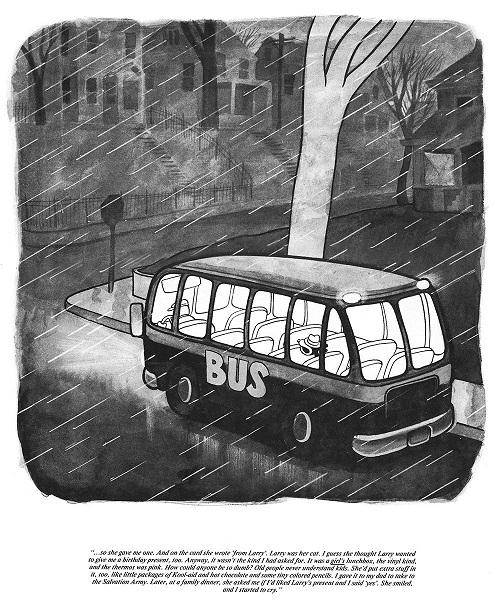Let’s swipe an idea from Branko, who after all got it himself from Scalzi and see what sites pop up for each lettre of the alphabet (save for ÆØÅ of course) if I use Opera’s autocomplete (other browsers are available):
A: Acesweekly, David Lloyd’s (off off V for Vendetta and Night Raven fame) new digital comics weekly.
B: the BBC radio player, tuned to radio 4, for my inner fogey.
C: Tom Spurgeon’s Comics Reporter, essential reading to keep up with Yank comics.
D: David Willis’ do-over webcomic.
E: Every Day Is Like Wednesday; more comics blogging.
F: The Guardian‘s football subsite.
G: Girls with Slingshots, comedy soap opera strip by Danielle Corsetto.
H: the Hooded Utilitarian, completely wrong comics group blog.
I: not much here, just where I went to the Saturday before last.
J: James Nicoll’s Livejournal. Come for the science fiction snark, stay for the cats and hare raising, live threatening accidents.
K: another comics blogger heard from.
L: what I use to catalog my books.
M: Metafilter, natch.
N: Making Light
O: Oglaf, not really safe for work.
P: legendary 2000AD writer/editor Pat Mills’ blog.
Q: Jeph Jacques Questionable Content.
R: Requires Hate, which puts the boot into everything that really is bad in science fiction and fantasy, like racist and sexist kind of bad, rather than just awful writing. Is everything people who make the toen argument dislike.
S: oh look, financial analysises of football clubs. That’s interesting.
T: The Comics Journal.
U: Unfogged, a smartypants smart aleck group blog.
V: Voetbal International, not that I visited this site much.
W: Tim O’Neil’s rather good if too infrequently updated blog.
X: XKCD, of course.
Y: yes of course it’s Youtube, but what particular video would this link to? Turns out it’s a metal dude singing to his cat. As you do.
Z: Zelo Street, an UK political/newsmedia blog that does daily battle with tabloid nonsense.
Interesting, wasn’t it?
